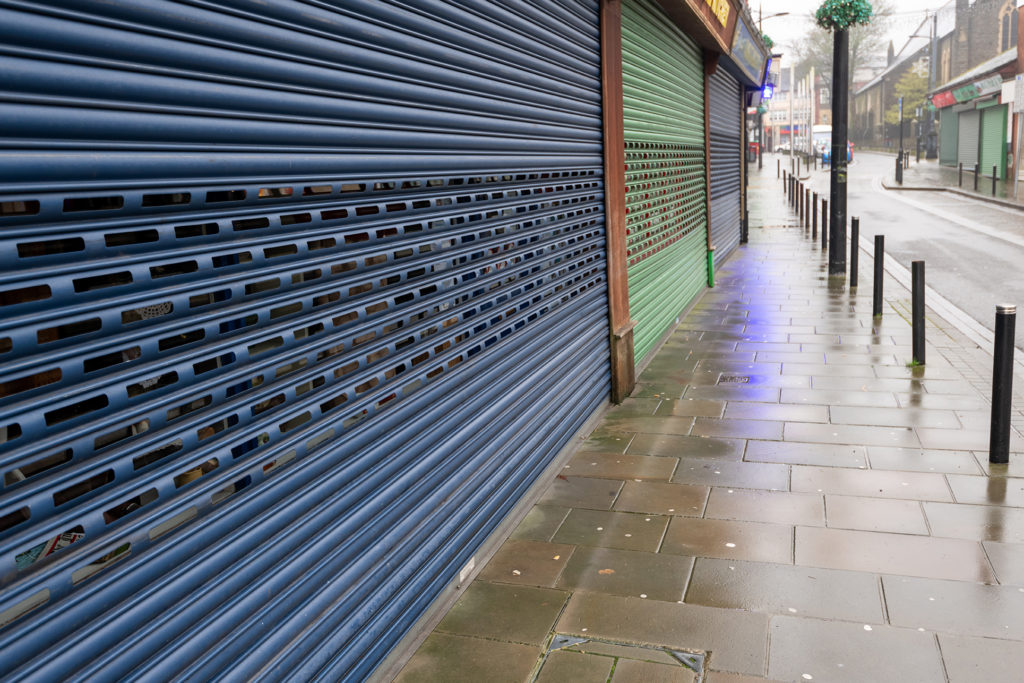New government proposals include ordering landlords to lease vacant shops that have been without tenants for over six months. In an effort to invigorate ailing high streets, community groups and small firms will be able to occupy empty retail units.
The new measures will be implemented as part of the Levelling Up and Regeneration Bill. The Daily Mail has revealed that this plan is set to be unveiled during the Queen’s Speech next month in May.
According to the publication a government source stated, “The government’s mission to level up will breathe new life into these great towns and end the scourge of boarded up shops sucking the soul out of once bustling high streets.”
The Tory manifesto declared that it would try to level up society in “every part of the UK” by improving life opportunities and vital services. Though the levelling up agenda has been accused of a focus on so called “red wall seats” that were previously held by Labour and were won by the Conservatives at the 2019 election. Accusations have been made that funding has been particularly targeted on improving conditions in these areas.
Plan Insurance can accommodate your Property Owners & Landlord Insurance needs. Just fill in our short call back form, and our professional brokers will be in contact to arrange your insurance.
Doors closed during lockdowns have never reopened
Post-Covid the number of vacant shops in the UK’s town centres has rapidly increased due to the change in shopping patterns. Figures produced by the British Retail Consortium state that one in seven units are now empty. In northeast England, the stats are even more dire as one in five are closed.
Traditional retailers have struggled since the pandemic as trade moved online, much of which has never returned. Giant department stores have been left empty following the demise of once leading retail brands.
What is Being Proposed?
The proposals will hand local authorities the power to order landlords to rent out high street properties via a compulsory rental auction. Landlords will be given a short grace period to fill the shop before local authorities begin the auction and invite bids from interested parties.
The intention is to reduce the number of vacant shops on high streets and give smaller companies and charities the chance to occupy the retail units.
Certain business leaders and campaign groups have applauded the initiative. Chief executive of industry body, UK Hospitality, Kate Nicholls, “We welcome these new proposals to rejuvenate empty properties, which can blight an area, stimulate innovation and accelerate economic growth and recovery.”
Greater Manchester’s night-time economy adviser, Sacha Lord, said: “Funding to repurpose empty outlets into retail, leisure or hospitality premises will not only aid town centre recovery but will encourage the public to shop local. This regeneration strategy has already worked in countless areas of Greater Manchester and I’m pleased that the government has recognised that much-needed action is now required to support our high streets.”
Campaign group Save The High Street, which launched in 2015, said it hoped the plans would “turn the vacancy crisis into an opportunity for positive change”.
Conclusion
We applaud the ambition of this initiative that aims to help the regeneration of our nation’s high streets. However, we understand that many landlords will be anxious regarding the suitability of any mandated tenants. More detail needs to be seen regarding the vetting processes that will be in place. Property owners will have concerns that they will be forced to enter into an agreement where long-term affordability is an issue. And will the landlord be left with a bad debt and premises with a limited rental appeal if the tenant that has been forced on them by this scheme subsequently stops trading and is unable to afford the cost of the dilapidations schedule?
The scheme will be forcing the arm of commercial landlords who are particularly selective or cautious when it comes to accepting tenant approaches. The type of businesses applying to lease their premises might be out of keeping with neighbouring commercial properties; for example, certain fast-food outlets won’t be to everyone’s taste, pardon the pun. Few high streets are in short supply of takeaways, barbers, grocery stores, cafes and beauty salons. So another business offering one of these services might have felt like overkill and a poor bet. But let’s face it, most landlords with retail premises haven’t been in a position to be too picky. With rates payable for vacant premises and many still having mortgage costs to cover they are unlikely to have been turning down prospective business owners who they felt, with a degree of confidence would be able to cover the required costs.
It feels like the issue is a lack of demand rather than a shortage of property supply. So would the government not be better off tackling the underlying reasons causing that lack of demand, such as crippling business rates for high street premises compared to their online-only competitors?


